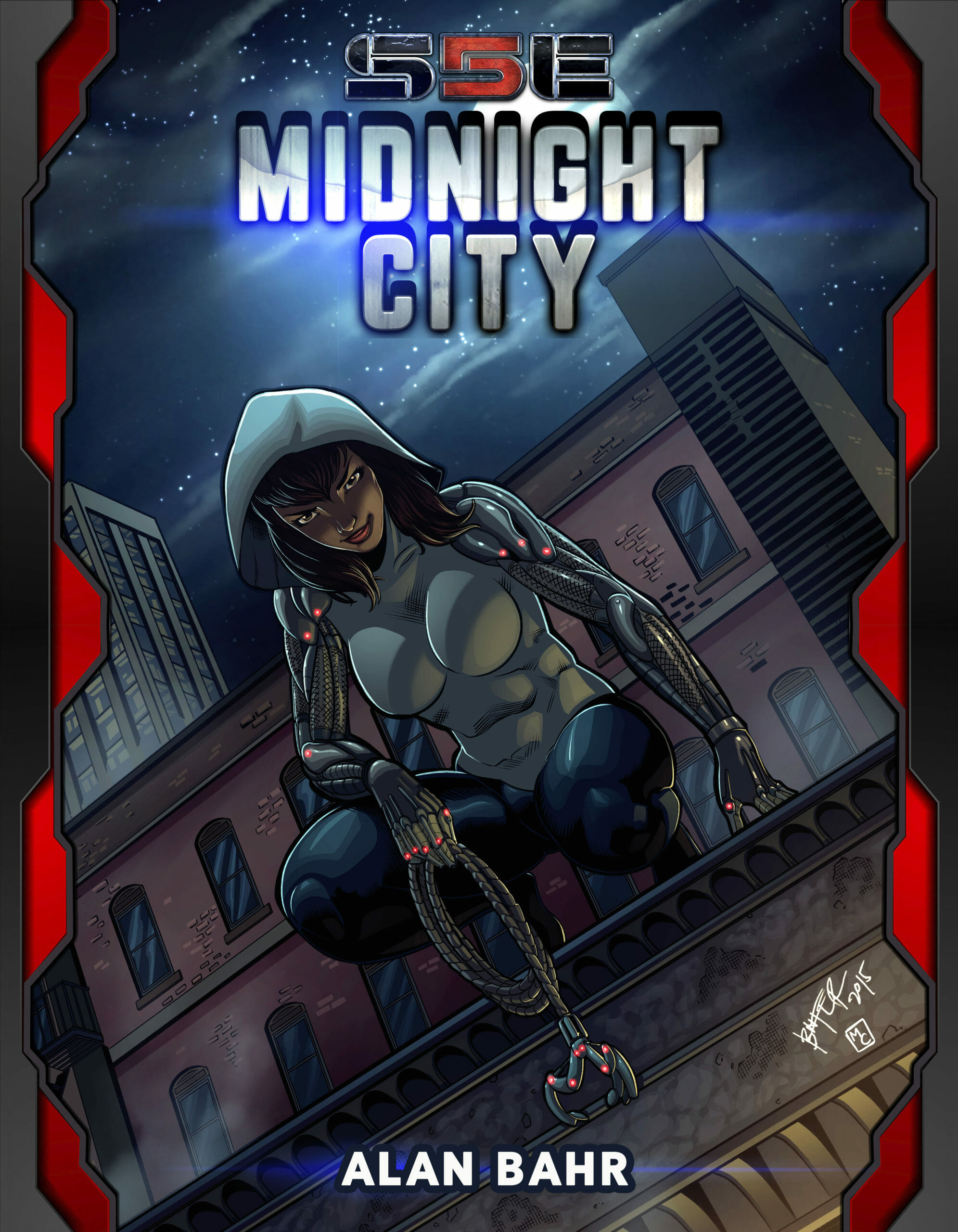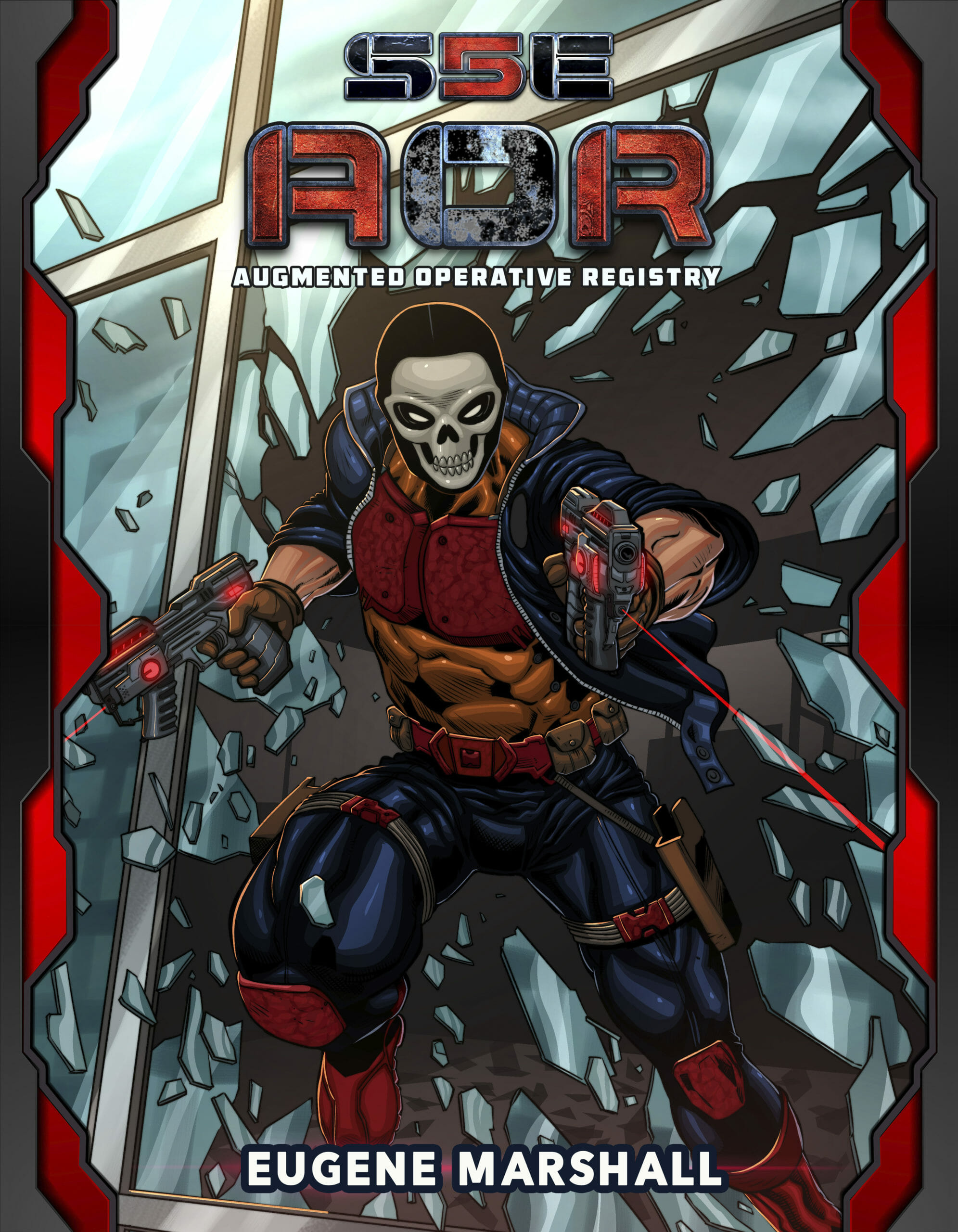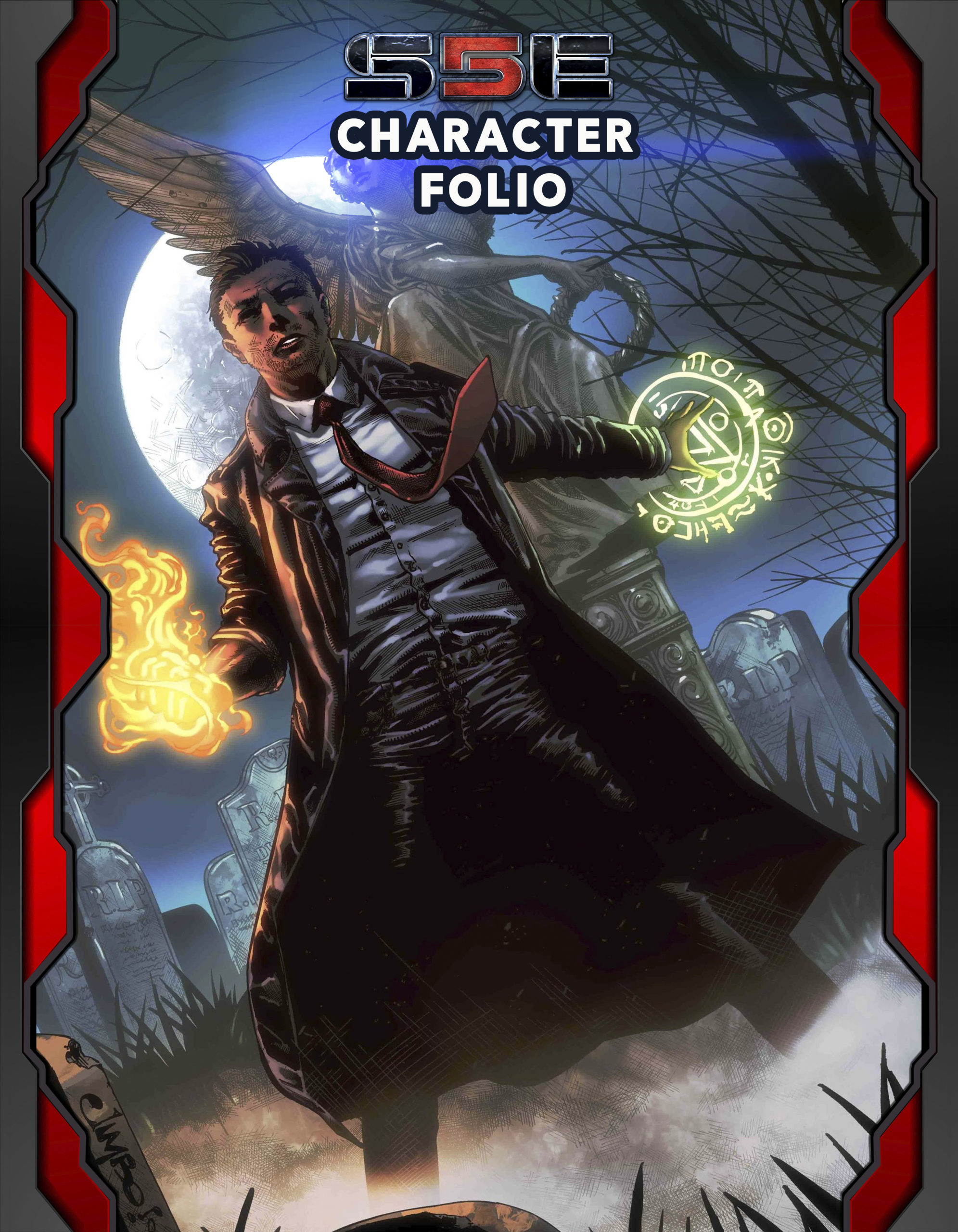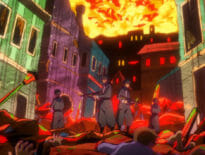Sigil Entertainment Group has hundreds of backers, are thousands over their campaign goal and about three weeks left on the clock for their S5E Kickstarter. As it becomes relevant later, biological essentialism is the idea that personality is biological; all humans are stupid, all orcs are angry, and an entire alien race hateful.
The S5E guide for DMs and players brings superheroes to D&D’s 5th edition, offering up new classes, ancestries and cultures, along with powers. You can join the backers or dig a little deeper at the campaign page. Geek Native has an interview with Eugene Marshall, who is 5SE’s lead writer, below that.
The S5E project brings more than just rules, but a setting as well in the shape of Midnight City.
Once a gem of a city, once also known as Suncoast City, the city became Midnight when the time-travelling sorcerer Chronikus slew those who opposed them and created an era of permanent-semi darkness.
The only heroes who remain are those who are willing to operate in shadows, fighting smugglers, criminals, and protecting those who could not flee. They seek to reclaim the city, block by block, holding back the forces of evil, greed, and violence unleashed by the villains who now run the city.

A pledge of $10 will get you the S5E PDF, all the digital stretch goals, access to add-ons, desktop wallpapers and book credit.
Stepping the pledge up to $50 is enough to add in the book’s print edition, but you will have to find shipping costs out later.
$65 adds the Augmented Operative Registery book to the rewards, which is a collection of supervillains, criminals, monsters and aliens to fight.
The Midnight City joins after that, but you can get it at $130 without also paying for the Augmented Operative Registry (AOR). If you want both additional books then the whole bundle is available at pledges of $250 or above.
The estimated fulfilment is February 2022.
The creative team on the project for S5E are Aaron Acevedo (Savage Worlds, Talisman RPG, Torg Eternity), Alan Bahr (Tiny Supers), Kevin Andrew Murphy (Wild Cards) and Sanford Green (Bitter Root). There’s also Eugene Marshall, who we can meet below.
S5E interview with Eugene Marshall
In this interview with Eugene of Arcanist Press, we needle into the ethics of superheroes. No doubt, I ask some questions that might get a WTF response from readers, but the goal was to dig as thoroughly as possible.
It’s not often you get to talk to an RPG designer who is also an Associate Professor of Philosophy about some of the hot topics and debates in the geek scene.
Why pick 5e for a superhero game, and what challenges does that mean you have to overcome?
We chose 5e because of the massive player base; we wanted an audience who would know how to play the game, so they could dive right into to the fun! But making a superhero game for 5e poses certain challenges.
For example, D&D is a system built on scarcity and resource management; do you use that spell slot now or save it for later? How many arrows do you have left? And so on. That doesn’t feel very super heroic. Imagine if the Human Torch threw some fire around and then said, “Sorry guys, I’m all out of fire.” That’s just not the character! So we altered the rules so that superheroes actually felt super.
Is Superheroic a game that could be used to run a Batman v Superman-style scenario and cope with the divergent heroes?
Absolutely. The superheroes have powers that balance well against one another, so you could make a superhero and a supervillain, or two superheroes. Just like you might have two D&D characters square off as well. What’s more, the setting we’re including, Midnight City, would be perfect for some Snyder-style divergent heroes, for sure.
In S5E, you could make heroes just like Superman and Batman, though you’d have to make them high level to really capture their power and skill. In fact, I might just build them and arrange to have them fight, see how they do against one another!
Is Batman a superhero or something else such as a hero or a vigilante?
Batman is a superhero, 100%. He may also be a vigilante, though this is not the same as a superhero. Superman is a superhero but not a vigilante, for example. Batman is a superhero because of the impact he has on the world and the feats of superheroism he has performed.
Increasingly, there’s been some awkwardness around how D&D treats races, and you’ve been at the forefront of making suggestions on better alternatives. Are there similar issues with superheroes?
I am the author of Ancestry & Culture: An Alternative to Race in 5e, which Geek Native covered last year. We are using the same system here. When you make your hero, you choose their biology: human, mutant, alien, robot, atlantean, etc. And then you choose where you grew up. Are you an alien raised on Earth, like Superman? A human raised by aliens, like Star Lord? And so on. We believe this removes the worst aspects of biological essentialism from the game and also allows for much more varied and more interesting characters.
If society could do with some changes, and yet superheroes fight to keep things the same, to maintain the status quo, are they actually a force of stagnation?
Not all heroes fight to maintain the status quo. There a short discussion of this issue in the GM’s Guidance chapter, on the different between iconic and transformative storytelling. D&D generally present stories of protagonists who go from zero to hero, changing themselves and the world as they go. But some comics stories are iconic; the heroes never truly change, only deviating from their baseline before reverting to the norm. This style can be stagnating, for sure, but there’s no requirement that your superhero story follow that structure. We present several alternative narrative structures in that section, providing GMs everything they need to tell tales of superheroes adventure!
The power of Green Lanterns literally compel the world to be subjugated to their will; Hulk and Wolverine are all about acting out anger and revenge. Do you agree? Is it healthy?
There’s nothing wrong with compelling “the world” to your will. It’s only when you compel people that it becomes a problem. A farmer “compels” the soil to his will; I don’t have a problem with that. I also think it is overly reductive to reduce Hulk and Wolverine to anger and revenge, so no, I don’t agree. And as to whether it is healthy, they are fictional characters that often stand in as metaphors or allegories, not role models, so I think it is OK if, in some stories, their motivations are unrealistically simplified.
Is a punishment really justice if it’s delivered on the spot by a superhero?
Whether or not a punishment is delivered on the spot is not really the issue; what is the issue is that many superheroes and vigilantes dole out their justice without oversight, or due process, or Miranda rights. Superheroes and vigilantes would not be good for the real world. Superhero fiction, and superheroic roleplaying, however, can be!
Of course, some people may want to explore the ethical implications of superhero behavior in their games. That’s why we are including optional rules for tracking collateral damage, as well as optional systems for dealing with innocent bystanders. If players agree that they want that level of realism and consequences, then they absolutely can play that sort of game with S5E!
Is the superhero genre filled with objectification?
It has been and can be, yes, but it need not always be that way. Look at Ms. Marvel for a wonderful example of a comic about a teenaged Muslim girl who becomes a superhero in a wonderful story that avoids objectification.
How can players and DMs avoid traps like these in their games? Should they?
Yes, ideally, players and GMs should avoid pitfalls like racist depictions of characters, or sexual objectification. If a marginalized person or a woman are at the game table, these bad behaviors will likely alienate them and ruin their fun. But even if no one from the targeted demographic is at the table, it also harms the rest of us, because we are being served up garbage storytelling. Reliance on those bad old tropes is lazy and we shouldn’t accept them.
Does Superheroic tackle any of these topics, or might it in future supplements?
Yes. We are hiring sensitivity consultants and experts on various problematic elements of the superhero genre. For example, Sara Thompson, famous for her combat wheelchair and her work on the Witcher RPG, is writing a section on disability in the superhero genre. We also have sections on sexism and racism, safety tools, and more.
What else might we see from you in the future?
S5E is going to be a large ongoing concern. We have campaigns, supplements, and lot of free content planned to support S5E for the foreseeable future!
Quick Links
This interview is part of Geek Native’s 2021 Superhero Week, and you can explore other random articles from the series, no matter when they were published, with this teleport link. You could go back in time, but please don’t do a Chronikus and shroud the blog in midnight darkness when you get there.





